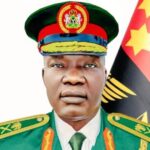As the election approaches, we need to remind ourselves on what we did wrong that led to the collapse of the First Republic and subsequently the emergence of the civil war. One good resource in this regard is Larry Diamond’s book “Class, Ethnicity and Democracy in Nigeria: The Failure of the First Republic” It’s a good analysis of the failure of the First Republic and reveals layers of the dynamic interplay of class, ethnicity and regionalism that was bound to lead into only one outcome, system collapse. Its essential reading and it has just been reprinted in Nigeria. I reproduce below excerpts and summary from the chapter on the 1964 election.
He starts by drawing our attention to the fact that Nigerian politicians have a history of recklessness. The Daily Express editorial of 28 December 1964 had argued that the crisis in the country was the result of inordinate ambition on the part of some politicians. Debating the crisis in a formal debate in London the same week, Nigerian students also came to the conclusion that politicians rather than the constitution had failed. Diamond argues that the failure was too easily attributed to the ethnic question. The reality however was that ethnicity was the construction of politicians and not the eruption of popular sentiments. He draws attention to a survey carried out in 1963-64, which demonstrated “surprising levels of interethnic tolerance and acceptance among the ethnically heterogeneous work forces sampled.”
The core argument of Diamond is that the First Republic collapsed because there was no respect for the core principle of liberal democracy – free and fair competition for power through elections. For many years, regional governments were violating the spirit and increasingly the letter of this basic principle, until each region had become a virtual one-party state. He points out that the degree of overt repression, especially in the North, and the subjugation of the Action Group through a manifestly fraudulent and partisan use of Federal emergency power, were fundamentally inconsistent with liberal democracy. The 1964 Federal Election erased most of what remained of the democratic character of the system.
The army did not jump into the political arena in January 1966 by accident, they were dragged in. In 1964, southern university students, concerned that the NPC was manipulating the electoral process, called for a three-month army takeover to organise the elections. Immediately after the elections, UPGA opposition leaders began talking of secession and vowed, in the aftermath of the election, not to accept the authority of any government based upon its outcome. Indeed, UPGA militants felt betrayed when President Azikiwe finally conceded to Sir Abubakar’s authority. From now on, political leaders throughout the Eastern Region, and probably the bulk of their followers, would no longer recognise any NPC federal government as legitimate in its authority, though they would, for utterly pragmatic reasons, grudgingly accept it. Such alienation and cynicism were also growing in the Western Region, where ‘the NNDP by a mixture of persuasion, force and fraud, secured a larger number of seats but in doing so intensified popular support for the AG.
Perhaps most ominously, the election crisis drew the Army into political conflict more fully than ever before. Though the army sided with the Constitution and attempted to remain as far above the conflict as possible, it had been forced to take sides. And increasingly, the Army was being called upon to quell and contain the unrest that the politicians had generated, which meant using its coercive power and authority in support of the NPC Federal Government. More and more, the Army was coming to be seen as the only force capable of refereeing political conflict. If many politicians and opinion leaders were maintaining that only the army could fairly and efficiently administer the elections, what were the officers themselves to think? In fact, it appears that a number of middle-ranking officers, including perhaps three LieutenantColone1s ‘seriously discussed whether the military should intervene to resolve the crisis’ argued Diamond.
Following the election, crisis broke out on 1st January 1965, when the contents of a speech to be delivered by President Azikiwe were revealed. The core issue was that Azikiwe vowed to prevent the Prime Minister from forming a new Government on the basis of the election results. Reviewing the repeated frustration of attempts to ensure a free and fair election, and Sir Abubakar’s rebuff of his request for postponement and UN supervision, he said they had finally agreed to allow the Federal Electoral Commission (FEC) to take ‘appropriate action’. But when the FEC failed to postpone the election and three of its members resigned, he felt morally compelled to reject the election result (and by extension, Sir Abubakar’s entitlement to form a new government). The Prime Minister’s response was that postponement of the election had never been discussed between them; that only the FEC could call off the election and only the courts could remedy irregularities.
As the confrontation hardened following the election debacle, President Azikiwe made his own play for control of the armed forces. Summoning the British army commander, Major-General Welby-Everard, Navy Commodore Wey and Police Inspector-General Edet to the State House, Azikiwe ‘is alleged to have pointed out that they owed allegiance first to him as President of the Republic’ and Commander-in-Chief. Anticipating such a claim, the service chiefs had sought constitutional advice, which confirmed that operational command of the three services was clearly vested in the Prime Minister. Commodore Wey told the President he could take orders only from the Prime Minister. As an expatriate, General Welby-Everard did not wish to get enmeshed in a political dispute and politely withdrew, but then circulated to all his officers an explanation of the constitutional position.
Following this failure to use the armed forces, a compromise was worked out On Sunday, 3 January with a six-point formula for resolving the deadlock. Its key provisions were: that ‘a broad-based national government . . . be formed on the results of the last election’; that the legality of the election be determined in the courts and the results upheld, except where the number of voters was so small as to require another election; that arrangements be made within six months for a Commission (and then a constituent assembly) to review the Constitution and the electoral machinery; and that the Western Regional Government be dissolved ‘to enable the people of that Region to express their will as to who should govern them’. All these were agreed to but nothing was implemented.
There were two political formations in 1964 and Diamond argues that a superficial analysis of party alignments might suggest that historic regional cleavages had finally been bridged with the formation of the two grand alliances. In fact, the opposite was true. The year-long Federal Election struggle was essentially a confrontation between the nuclei of the two alliances, the NPC of the North and the NCNC of the East. As the conflict progressed, it increasingly polarised around these two dominant poles. While political or ideological themes were raised in the campaign, they did not cut across traditional regional, ethnic, and party cleavages as they had during the General Strike. When proponents of class-conscious, ideological themes finally aligned with one side, ideology melted into sectionalism. The regional and ethnic character of the conflict was evident throughout, from the preliminary skirmish in the Mid-West through the violence and ethnic vituperation of the campaign to the tense final weeks of crisis, rife with threats and rumours of Eastern secession.
Diamond argues that an important feature of the conflict, foreshadowing the subsequent tragedy of secession and civil war, was the recurrent political isolation of the Igbo, who were left at critical moments to face their ethnic antagonists in the North and West without appreciable support from their party brethren and political allies in the Mid-West and West. This was demonstrated in the ethnic controversy of March 1964, when even NCNC loyalists joined the Western Region’s tirade against Igbo domination of the country. It was evidenced again in the electoral showdown, when the bulk of the Action Group leadership balked at the boycott proposal. But it was most visible in the continued ambivalence of the Mid-West NCNC, dominated by minority ethnic groups.
The most proximate cause of the election crisis was the polarisation of conflict between the two alliances, and especially between the ruling parties of the North and East. No general rule of social action is more graphically demonstrated in this period of Nigerian history than the close connection between the degree of polarisation of conflict and the difficulty of its peaceful, constitutional resolution. The components of conflict polarisation – the gathering of forces around opposite extremes, the disappearance of moderate or mediating forces and of salient cross-cutting cleavages, the erosion of the rules of competition and of belief in the possibility of mutual benefit – had been steadily developing through the successive political conflicts since Independence. While the deterioration was not yet so complete as to obliterate any possibility of compromise, it had made political conflict extremely intense, explosive and crisis-prone.
 Join Daily Trust WhatsApp Community For Quick Access To News and Happenings Around You.
Join Daily Trust WhatsApp Community For Quick Access To News and Happenings Around You.



